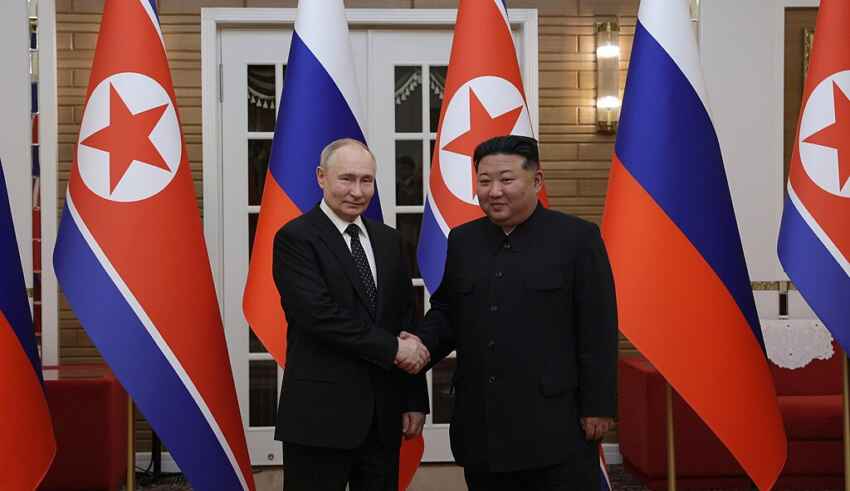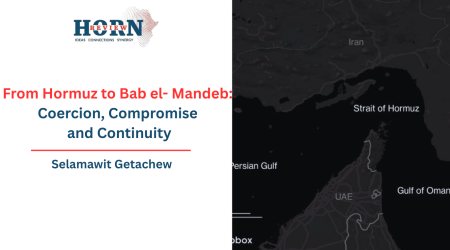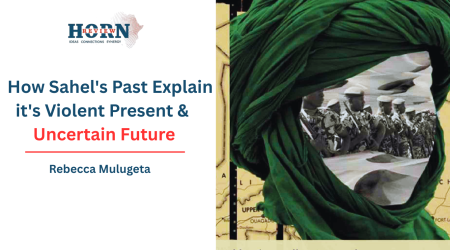
8
Jul
How the Growing Russia-North Korea Military Cooperation reshapes the Horn’s Security Architecture
In recent years, the military and technological cooperation between Russia and North Korea has intensified, signaling a significant shift in the global security landscape. This partnership, reportedly including the transfer of drone technology and other military equipment from Russia to North Korea, holds great implications not only for global geopolitics but also for regional stability in areas such as the Horn of Africa. The alliance’s impact is further complicated by North Korea’s expressed interest in supporting Iran militarily amid the ongoing Iran-Israel conflict, while Russia remains ready to provide indirect support. Together, these developments are reshaping power dynamics and security interests across regions.
intrinsically this cooperation is a strategic alignment that challenges the existing balance of power. North Korea’s willingness to assist Iran with nuclear and military technology comes at a critical moment, as Iran has recently lost key nuclear facilities and top military intelligence personnel. Although Russia has not openly engaged in the Iran-Israel conflict, its readiness to support Iran underscores a strategic alliance with North Korea’s efforts. This collaboration could potentially rebalance the military rivalry in the Middle East by strengthening Iran’s capabilities and countering Israel. Meanwhile, Western leaders, including former Dutch Prime Minister Mark Rutte, have emphasized the urgent need for enhanced transatlantic defense cooperation to address the challenges posed by Russia’s military resurgence. The Russia-North Korea alliance thus represents a strategic challenge to Western security frameworks.
Beyond the Middle East and Asia the cooperation has implications for the Horn of Africa, The Horn of Africa, a region already encircled by complex security challenges, stands to be significantly influenced by these global shifts. Russia’s longstanding interest in expanding military cooperation with Ethiopia highlights how this partnership could affect regional security architectures. Ethiopia’s defense forces, heavily reliant on Russian-supplied equipment, have benefited from increased professionalism and capacity building critical factors in managing internal security threats and regional conflicts. This military strengthening enhances the Horn’s ability to confront insurgencies and terrorism, particularly in fragile states such as Somalia. However, the influx of arms and military support also carries risks: irregular arms flows could empower insurgent groups, exacerbating instability and complicating peace efforts.
Beyond military capacity building, the Russia-North Korea cooperation provides Horn of Africa countries with alternative diplomatic and strategic partnerships. By diversifying their security alliances beyond traditional Western frameworks, these countries can reduce dependency and gain greater leverage in international negotiations. This multipolar engagement enhances their strategic autonomy, enabling them to better navigate the complex geopolitical environment shaped by competing global powers. This growing Russia-North Korea military partnership reshapes the global balance of power by reducing North Korea’s reliance on China and increasing Russia’s position against Western influence. Formalized through mutual defense agreements, this alliance signals a new level of strategic cooperation that could alter security dynamics not only in Northeast Asia but also in other regions, including the Horn of Africa.
For the Horn of Africa, this partnership offers both opportunities and challenges. On the positive side, Russian military training and equipment support strengthened by ties with North Korea can help regional countries like Ethiopia develop stronger, more professional defense forces. This capacity is vital for managing internal security threats, countering terrorism, and addressing regional conflicts, thereby contributing to greater peace and stability. Furthermore, having alternative military and diplomatic partners beyond the West provides the Horn of Africa with increased leverage and strategic autonomy in international relations.
However, these benefits come with significant risks. The inflow of arms and military technology, if not carefully managed, can inadvertently empower insurgent groups and irregular forces, worsening insecurity and instability in fragile states. The proliferation of foreign military influence and arms flows may fuel conflict cycles, undermine governance, and complicate peacebuilding efforts. Therefore, while the Russia-North Korea alliance can enhance the Horn’s security capabilities, it must be managed with caution to prevent the unintended strengthening of insurgencies and prolonged instability.
In conclusion, The deepening military and technological cooperation between Russia and North Korea is a transformative development with far-reaching consequences. It shifts the global balance of power, challenges Western dominance, and opens new areas for strategic partnerships in regions like the Horn of Africa. For the Horn, this cooperation offers opportunities to strengthen military capacity, enhance security, and gain diplomatic leverage. Yet, these opportunities carry some risks that demand vigilant oversight to avoid exacerbating insurgencies and regional instability. Navigating this complex geopolitical landscape requires wise diplomacy, strong governance, and a strategic vision that balances external partnerships with internal security priorities. If managed wisely, the Horn of Africa can use this new opportunity to foster sustainable peace, stability, and development in a region long marked by conflict and competition.
By Rebecca Mulugeta,Researcher,Horn Review










